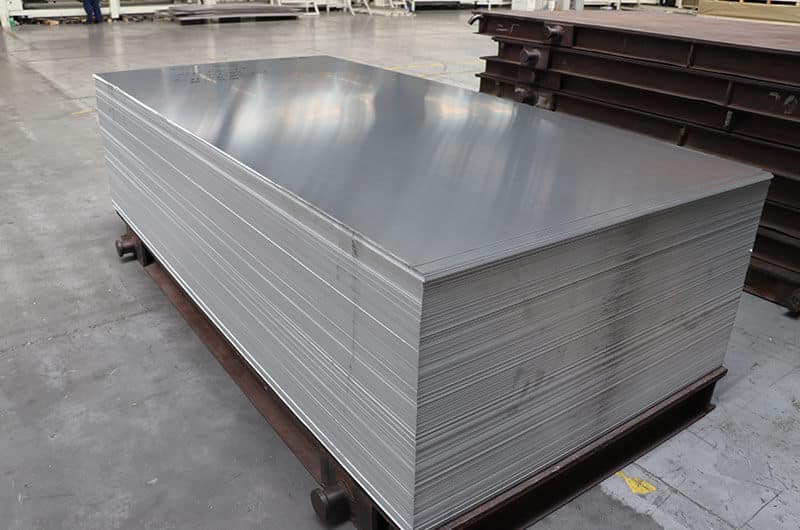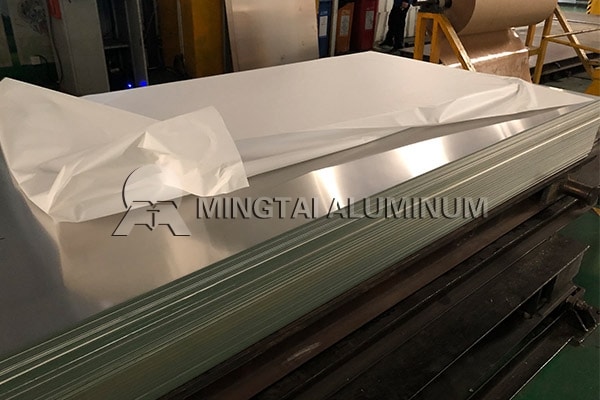3003 aluminum sheet is an aluminum-manganese alloy that contains a certain amount of manganese alloy, resulting in higher strength compared to pure aluminum sheet. It has a specific gravity of 2.73, a tensile strength of 150, a yield strength of 145, a shear resistance of 95, and an elastic modulus of 69.
In the H24 state, the tensile strength of 3003 aluminum plate is generally close to 160-170 MPa, which is about 20% higher than that of 1060 and 1100 aluminum plate. With its lower tensile strength, 3003 aluminum sheet offers a relatively cost-effective option for products that require a slight advantage in tensile strength.

Tensile strength is a crucial parameter in mechanical properties, representing the maximum stress that can be applied to a material without breaking it. It is typically determined using tensile testing machines, and it primarily reflects the material's resistance to breaking. Tensile strength is a significant indicator of a material's mechanical properties, highlighting its durability and strength under tensile loads.
The tensile strength of the 3003 aluminum plate refers to the maximum force the plate can withstand before breaking. When the plate yields to a certain extent, the internal grains rearrange, improving the deformation resistance of the aluminum plate. However, as the stress increases, the deformation develops rapidly until it reaches its maximum. After this point, the aluminum plate's ability to resist deformation is significantly reduced, and a large plastic deformation occurs at its weakest point.
3003 aluminum cannot be heat-treated to increase its strength. It is semi-cold hardened and has good corrosion resistance. It is easy to weld, but cutting can be challenging. It can be polished.
Our production of 3003 aluminum plate involves rolling processing, including hot rolling and casting rolling. During hot rolling, the internal structure of the aluminum plate undergoes multiple recrystallizations, breaking down the fine and large grains present in the casting state, thereby enhancing the performance of the aluminum plate. In terms of deep drawability, hot-rolled materials offer unparalleled advantages compared to cast-rolled materials.
3003 aluminum sheet is widely used in the production of stamping parts, models, shells, and other applications. The power battery shell made of 3003 aluminum alloy offers impact resistance, durability, and leak-resistant properties, meeting the strength and rigidity requirements of the power battery shell. Additionally, the aluminum alloy's small density and light weight contribute to reducing battery weight and increasing battery capacity density.
There are various types of rice cooker inner pots available, including black crystal, aluminum alloy, stainless steel, purple sand, and more. Each type of inner pot varies in terms of properties, lifespan, and price. Generally, the aluminum inner tank of a rice cooker adopts 3003 aluminum alloy plate. Feel free to leave a message below to inquire about the 3003 aluminum alloy price.




